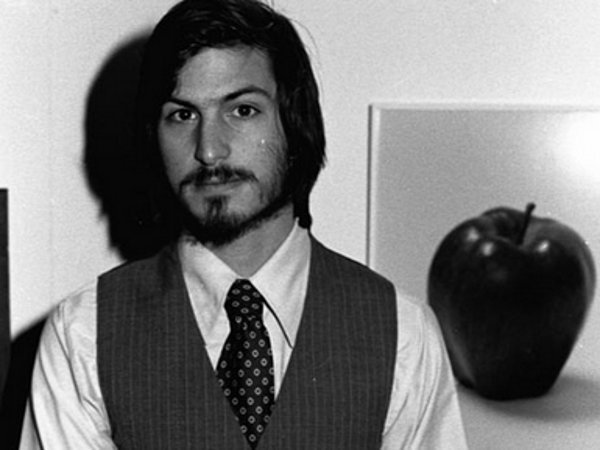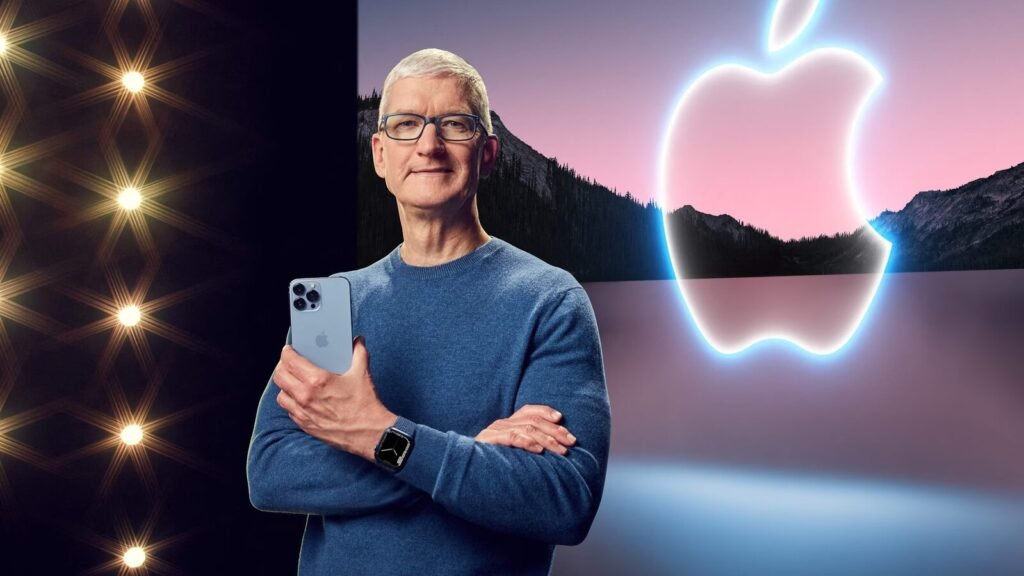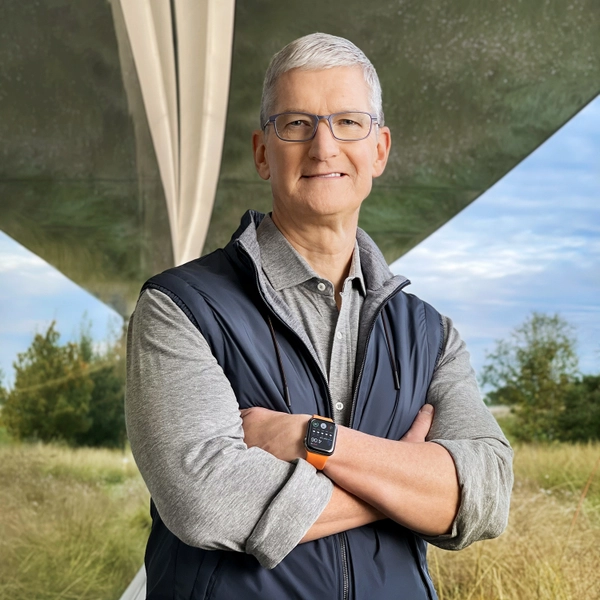Tim Cook Then and Now
Tim Cook Then
Timothy Donald Cook, widely recognized as Tim Cook, was born on November 1, 1960, in Mobile, Alabama.
Growing up in a working-class family, his father, Donald, was a shipyard worker, while his mother, Geraldine, contributed to the household by working at a local pharmacy.
This upbringing instilled in Cook a strong work ethic and a commitment to education.
He spent his formative years in nearby Robertsdale, Alabama, where he attended Robertsdale High School, excelling academically and developing a keen interest in technology and business.
After graduating from high school, Cook pursued higher education at Auburn University, where he earned a degree in Industrial Engineering in 1982.
His studies in industrial engineering provided him with a solid foundation in the principles of efficiency and optimization, which would later influence his leadership style at Apple Inc.

Following his undergraduate education, Cook sought to enhance his business acumen further.
He enrolled in the Fuqua School of Business at Duke University, where he earned his Master of Business Administration (MBA) in 1988.
Graduating in the top 10% of his class and receiving the prestigious title of Fuqua Scholar, Cook distinguished himself as a capable leader with a deep understanding of business strategy and operations.
Cook’s educational background laid the groundwork for his successful career in technology and business.
His combination of technical knowledge and business expertise would prove invaluable as he took on various roles in the corporate world before ultimately becoming the CEO of Apple Inc. in 2011.
Cook’s journey from a small town in Alabama to the helm of one of the world’s most influential companies is a testament to his dedication, intellect, and leadership capabilities, which have significantly shaped the landscape of modern technology.
Related Article: Mark Zuckerberg Then and Now
Tim Cook Business Career
Straight out of college, Tim Cook began his professional journey at IBM, where he quickly rose through the ranks.
His initial role involved managing manufacturing and distribution functions for the Personal Computer Company, and he eventually became the North American Fulfillment Director.
In this position, Cook was responsible for overseeing operations in both North America and Latin America, where he honed his skills in supply chain management and operational efficiency.
His 12-year tenure at IBM provided him with invaluable experience in the tech industry, setting the stage for his future leadership roles.
After leaving IBM, Cook took on the role of Chief Operating Officer for the Reseller Division at Intelligent Electronics, where he focused on improving operational performance and distribution strategies.
This position was followed by a brief tenure as Vice President of Corporate Materials at Compaq, where he managed purchasing and product inventory.
These roles allowed Cook to develop a deep understanding of corporate operations and supply chain dynamics, which would later play a crucial role in his leadership at Apple Inc.
Cook’s influence extends beyond corporate management into broader social and ethical issues in technology.
In 2013, he attended a private summit hosted by President Barack Obama to discuss surveillance and internet privacy in the wake of the Edward Snowden revelations.
This engagement highlighted Cook’s commitment to advocating for privacy rights.
His strong stance was further evident in 2015 when the FBI sought Apple’s assistance to unlock an iPhone used in the San Bernardino terrorist attack.
The Department of Justice demanded that Apple create custom firmware to enable access to any iPhone, a request Cook publicly denounced in an open letter.
He argued that complying with such demands would represent a severe breach of privacy, with potentially “chilling” consequences for public safety and personal freedom.
This incident underscored his dedication to safeguarding user privacy and ethical practices within the tech industry.
In addition to his corporate responsibilities, Cook has also taken on leadership roles in academic and non-profit sectors.
In October 2019, he was appointed chairman of the advisory board for Tsinghua University’s economics school, with a three-year term focused on fostering innovation and education.
His involvement on the board of directors for Nike, Inc. and the National Football Foundation further exemplifies his commitment to contributing to various sectors beyond technology.
Cook’s ownership of $3.4 million worth of Nike shares reflects his belief in the company’s vision and values, underscoring his multifaceted career and influence in both business and academia.
Related Article: Jeff Bezos Then and Now
Apple

In 1998, Tim Cook took a significant step in his career by joining Apple as the Senior Vice President for Worldwide Operations.
This was a pivotal moment for both Cook and the company, as Apple was struggling during a particularly challenging period.
At the time, Apple had yet to develop groundbreaking products like the iMac, iPod, iPhone, or iPad and was experiencing declining profits and a lack of growth.
Despite the company’s precarious situation, Cook’s decision to join was driven by his belief in its potential.
Friends expressed their concerns, advising him against joining a flailing company, but Cook recognized the opportunity to make a substantial impact.
Upon assuming his role, Cook implemented a series of strategic changes aimed at revitalizing Apple’s operations.
He closed several underperforming factories and transitioned to a model that relied on contract manufacturers.
This move not only reduced operational costs but also increased efficiency.
Cook invested in long-term agreements, including a significant advance investment in flash memory, which positioned Apple favorably for future product development.
His efforts yielded impressive results, transforming a prior net loss of $1 billion into substantial profits and establishing a reputation for keeping Apple’s costs under control.
During this time, Cook also led the Macintosh division and worked on enhancing relationships with resellers and suppliers, ensuring that Apple’s products reached the market effectively.
In January 2007, Cook was promoted to lead operations, and by 2009, he was acting as Apple’s chief executive during Steve Jobs’ health-related leaves of absence.
This period marked a critical juncture for the company, as Cook was responsible for the day-to-day operations, keeping the company on course despite Jobs’ absence.
When Jobs resigned as CEO in August 2011, Cook stepped into the role, just two months before Jobs passed away after a long battle with cancer.
Under Cook’s leadership, Apple experienced phenomenal growth, skyrocketing from less than $6 billion in revenue in 1998 to over $100 billion, a remarkable turnaround that highlighted the effectiveness of their partnership.
Cook’s accomplishments did not go unnoticed; he was named one of “Time” magazine’s 100 Most Influential People in the World in April 2012 and was awarded one million shares of Apple stock by the board of directors.
Demonstrating his commitment to philanthropy, Cook announced his intention to donate his entire stock fortune to charity.
In May 2014, Apple made headlines with its $3 billion acquisition of Beats Music and Beats Electronics, the largest acquisition in the company’s history at that time.
Under Cook’s stewardship, Apple unveiled groundbreaking products such as the iPhone 6 in 2015 and the Apple Watch in 2016.
While some critics claimed that innovation had slowed during Cook’s era compared to Jobs’ tenure, the company continued to thrive, releasing new iPhone models annually with incremental upgrades.
In 2023, Apple made a significant leap into the future with the unveiling of the Apple Vision Pro, an augmented and virtual reality headset, showcasing Cook’s ongoing commitment to pushing the boundaries of technology.
Related Article: Elon Musk Then and Now
Tim Cook Now

As of now, Tim Cook is 63 years old and serves as the Chief Executive Officer (CEO) of Apple Inc., one of the most influential technology companies in the world.
Cook’s ascent to the role of CEO in 2011 marked a significant transition for Apple, following the tenure of co-founder Steve Jobs, who was a transformative figure in the tech industry.
Having previously held the position of Chief Operating Officer, Cook was intimately familiar with Apple’s operations, culture, and vision, allowing him to lead the company through a crucial period of innovation and growth.
Under Cook’s leadership, Apple has continued to thrive, achieving record revenues and expanding its product and services portfolio.
He has overseen the launch of groundbreaking products, such as the Apple Watch and AirPods, as well as the continued evolution of flagship products like the iPhone and iPad.
Cook has also emphasized the importance of sustainability and social responsibility in Apple’s operations, making strides toward reducing the company’s carbon footprint and advocating for privacy rights in technology.
His focus on ethical business practices and inclusivity has helped shape Apple’s identity as a socially responsible company.
Cook’s leadership style is often characterized by a collaborative approach, contrasting with Jobs’ more charismatic and sometimes abrasive demeanor.
He is known for his calm and measured decision-making, as well as his ability to foster a culture of innovation within the company.
This has enabled Apple to maintain its position as a leader in the tech industry, continuously pushing the boundaries of what technology can achieve.
In addition to his corporate achievements, Cook has become a prominent advocate for various social issues, including privacy, diversity, and environmental sustainability.
His public stances on these issues reflect a commitment to using Apple’s platform for positive change, influencing not only the tech industry but also broader societal conversations.
As he navigates the challenges and opportunities in the ever-evolving tech landscape, Tim Cook remains a pivotal figure in shaping the future of Apple and its impact on the world.
Related Article: Bo Dallas Then and Now
Tim Cook’s Net Worth
Tim Cook’s net worth is estimated at $2.2 billion, a reflection of his successful career as a business executive and his long tenure as CEO of Apple Inc., where he has played a crucial role in driving the company’s growth and profitability, significantly increasing its market value and solidifying his position among the wealthiest individuals in the technology sector.
FAQs
Tim Cook became CEO of Apple in August 2011, following the resignation of co-founder Steve Jobs due to health issues. Cook had previously served as the company’s Chief Operating Officer, where he was instrumental in managing Apple’s worldwide sales and operations.
Steve Jobs chose Tim Cook as his successor because of Cook’s exceptional operational skills, deep understanding of the company, and ability to manage Apple’s supply chain effectively. Cook’s collaborative leadership style and focus on results made him a trusted ally during Jobs’ tenure.
Tim Cook is known to be private about his personal life, and he has not publicly disclosed any romantic relationships. He has stated that he prefers to keep his personal affairs out of the spotlight.
Tim Cook’s annual salary is reported to be around $3 million, but his total compensation, including bonuses and stock options, can significantly increase this figure, often totaling tens of millions of dollars depending on the company’s performance.
Tim Cook is currently the Chief Executive Officer (CEO) of Apple Inc., a position he has held since August 2011.
Tim Cook is running Apple as the CEO, leading the company’s strategic direction and overall operations.
Apple Inc. is a publicly traded company, meaning it is owned by its shareholders, which include individual and institutional investors.
As of 2024, Tim Cook remains the CEO of Apple Inc., continuing to guide the company through ongoing innovation and growth.






























